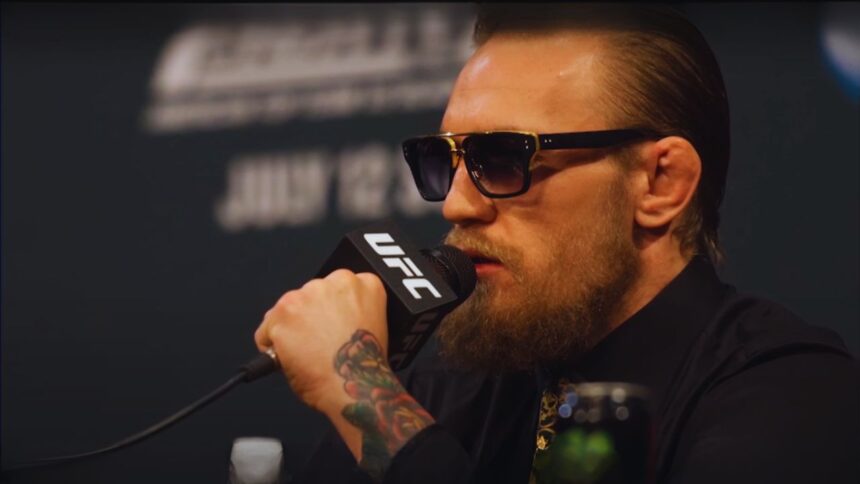Conor McGregor, the former UFC champion, made a surprising revelation during his appearance at Bellator Dublin, acknowledging that his experimental medical treatment might have exacerbated his injury setback, which forced him out of UFC 303. McGregor, who was slated to face Michael Chandler in the main event, withdrew due to a broken toe, a setback he discussed candidly during an MMA event in Ireland.
McGregor’s attempt to expedite his recovery involved a novel approach: Stem Cell Therapy. In an interview with the SevereMMA YouTube channel, McGregor detailed his experience with the treatment, which involved injecting stem cells extracted from his own back directly into the injured toe.
“It’s three weeks ago to the day, and I’m still here rocking around in the slippers – they’re not bad slippers thankfully, they’re cozy enough but I can’t [even] get into a shoe yet,” McGregor revealed, describing his ongoing recovery challenges.
The procedure, intended to accelerate healing, took a surprising turn. McGregor explained, “They put Stem Cells into me, took it from my back and put it in my foot, 20mg Stem Cell from my own back from the bone marrow in. Right into the break.” Despite the promising nature of Stem Cell Therapy, McGregor admitted that the outcome wasn’t entirely favorable.
“And then there was a little bit left over, so I said, ‘Yeah lob it into my shoulder, it feels a bit sore’ and my shoulder is actually feeling amazing – that Stem Cell’s good stuff, eye-opener… But my f***** toe is sore mate, and I don’t know if the Stem Cell’s into the break was the right move.”
McGregor’s revelation sheds light on the risks athletes often face in seeking unconventional treatments to hasten recovery from injuries. Stem Cell Therapy, while increasingly popular in sports medicine, carries uncertainties, particularly when applied to acute injuries like McGregor’s broken toe.
The setback McGregor has faced has indeed raised questions about his immediate future in the UFC, prompting speculation among fans and analysts regarding his recovery timeline and potential return to the octagon. McGregor’s openness about the mixed results of his treatment highlights the complexities of sports injury rehabilitation and underscores the pressures athletes like him face to expediently regain peak performance levels.
McGregor’s candid approach regarding his rehabilitation journey offers insight into the rigorous demands and uncertainties athletes encounter during recovery from injuries. His acknowledgment of the challenges and setbacks involved underscores the unpredictable nature of sports medicine and the dedicated efforts required to navigate physical rehabilitation effectively.
The spotlight on McGregor’s recovery also reflects broader discussions within the sports community about the importance of patient-centered care and the balance between pushing boundaries for athletic excellence and ensuring long-term health and wellness. As fans await updates on McGregor’s progress, his experience serves as a reminder of the resilience and determination required to overcome setbacks in pursuit of sporting success.
Ultimately, McGregor’s journey through rehabilitation will continue to be closely monitored by fans and analysts alike, shaping narratives around his potential comeback and the ongoing impact of injuries on athletes’ careers in high-stakes competitive environments like the UFC.




